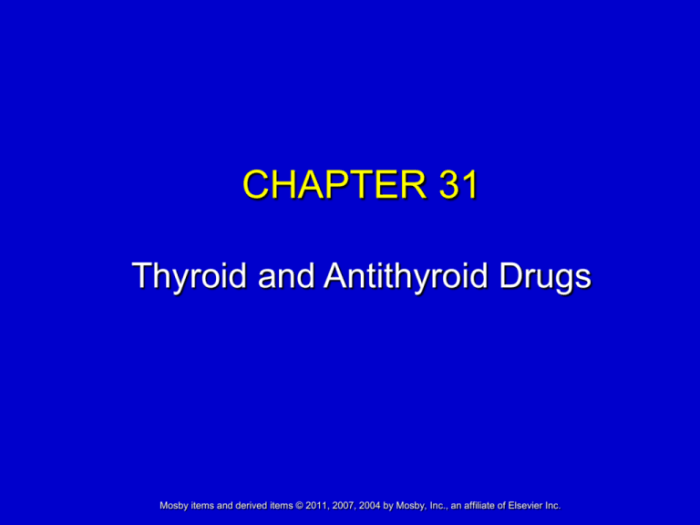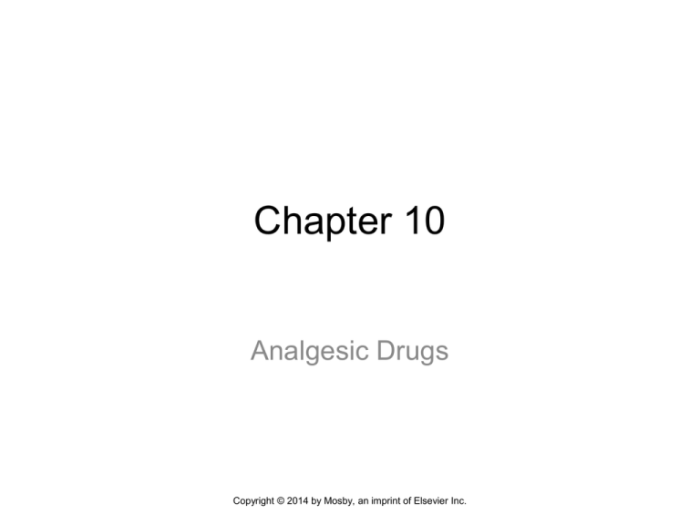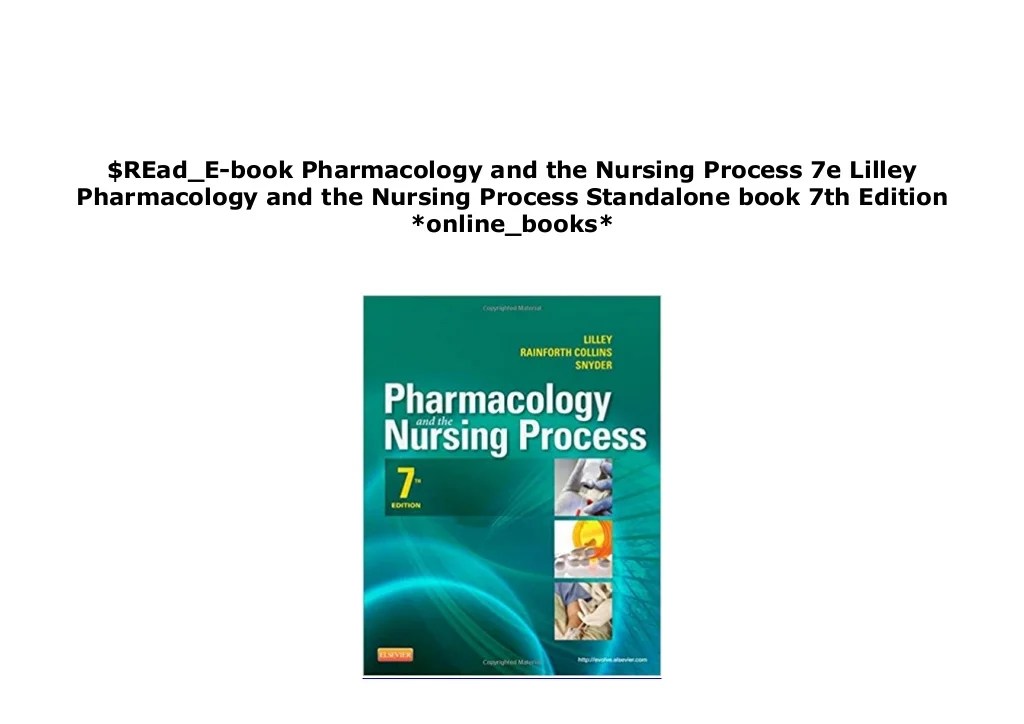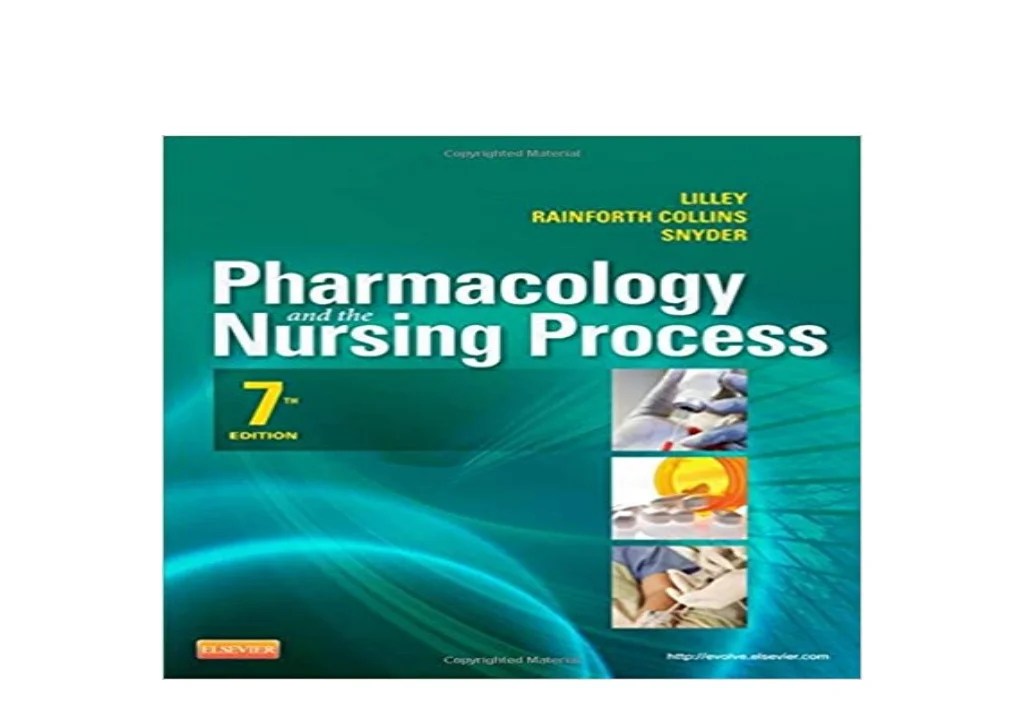Embarking on an exploration of Lilley Pharmacology and the Nursing Process, this discourse delves into the intricate relationship between pharmacology and nursing practice, highlighting the critical role of nurses in ensuring safe and effective medication administration.
Throughout this comprehensive guide, we will navigate the principles of pharmacology, delve into the steps of the nursing process as applied to medication management, and examine common drug classes and their nursing implications.
1. Introduction to Lilley Pharmacology and the Nursing Process
Lilley Pharmacology is a comprehensive reference for nursing students and practitioners, providing an in-depth understanding of drug actions, therapeutic uses, and the nursing process related to medication administration. The nursing process is essential for ensuring safe and effective medication management, involving assessment, planning, implementation, and evaluation.
2. Principles of Lilley Pharmacology

Pharmacology involves the study of drug actions, including pharmacokinetics (drug absorption, distribution, metabolism, and excretion) and pharmacodynamics (drug-receptor interactions). Drugs can interact with various receptors, leading to different therapeutic effects. Different drug classifications have specific therapeutic uses, such as antibiotics for infections and analgesics for pain.
3. Nursing Process in Medication Administration

The nursing process in medication administration involves assessing the patient’s medication needs, planning the medication regimen, implementing the plan, and evaluating the effectiveness and safety of the medication therapy. Nurses play a crucial role in patient education and counseling to ensure proper medication use.
4. Common Drug Classes and Their Nursing Implications

| Drug Class | Indications | Side Effects | Nursing Considerations |
|---|---|---|---|
| Antibiotics | Treat infections | Gastrointestinal upset, rash | Monitor for allergic reactions, adjust dosage for renal impairment |
| Analgesics | Relieve pain | Nausea, dizziness | Assess pain severity, use cautiously in patients with liver or kidney disease |
| Antihypertensives | Lower blood pressure | Hypotension, dizziness | Monitor blood pressure, adjust dosage gradually |
5. Medication Errors and Prevention: Lilley Pharmacology And The Nursing Process
Medication errors can be classified as errors of omission, commission, or timing. Prevention strategies include using technology, checklists, and patient verification. Nurses are responsible for reporting and managing medication errors to ensure patient safety.
6. Future Directions in Pharmacology and Nursing Practice

Emerging trends in pharmacology include personalized medicine, precision dosing, and technology in medication management. Nurses play a vital role in advocating for safe and effective medication use, leveraging advancements in pharmacology to improve patient outcomes.
Expert Answers
What is the significance of Lilley Pharmacology in nursing?
Lilley Pharmacology provides nurses with a comprehensive understanding of drug actions, interactions, and therapeutic uses, empowering them to make informed decisions about medication administration.
How does the nursing process guide medication administration?
The nursing process, encompassing assessment, planning, implementation, and evaluation, ensures that medication therapy is tailored to individual patient needs, promoting safe and effective outcomes.
What are the common drug classes used in nursing?
Common drug classes include antibiotics, analgesics, cardiovascular drugs, and psychotropic medications, each with specific indications, side effects, and nursing considerations.
How can medication errors be prevented?
Medication errors can be minimized through the use of technology, checklists, patient verification, and adherence to standardized protocols.
What is the nurse’s responsibility in managing medication errors?
Nurses play a crucial role in reporting, investigating, and implementing corrective actions to prevent future medication errors, ensuring patient safety.